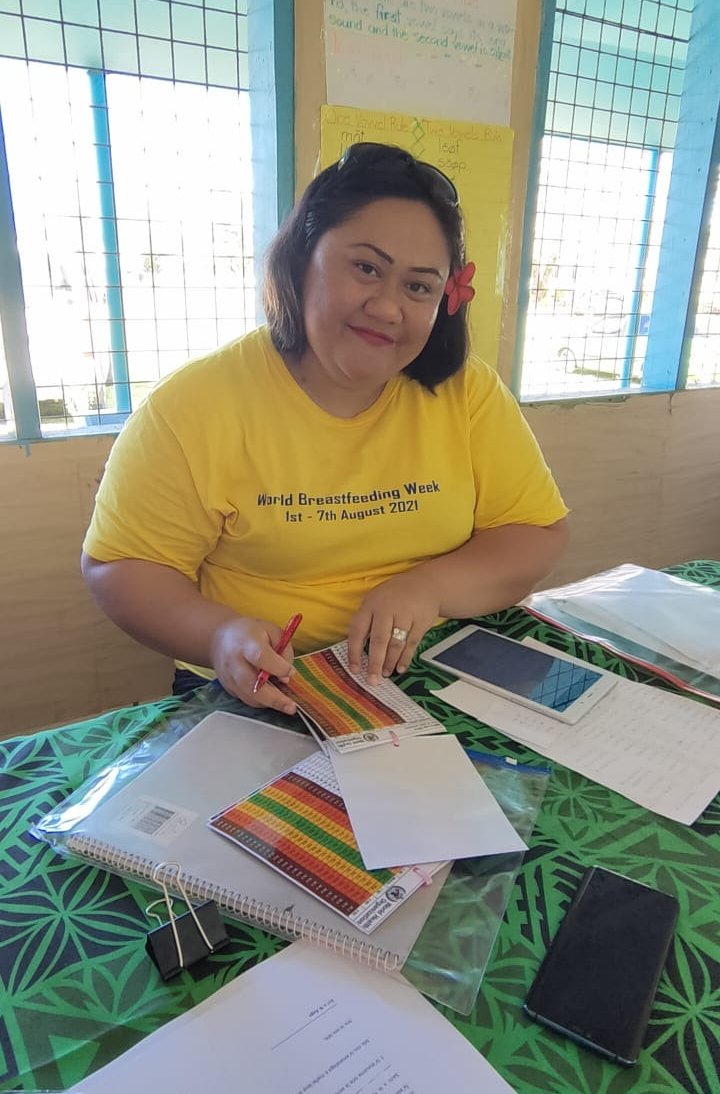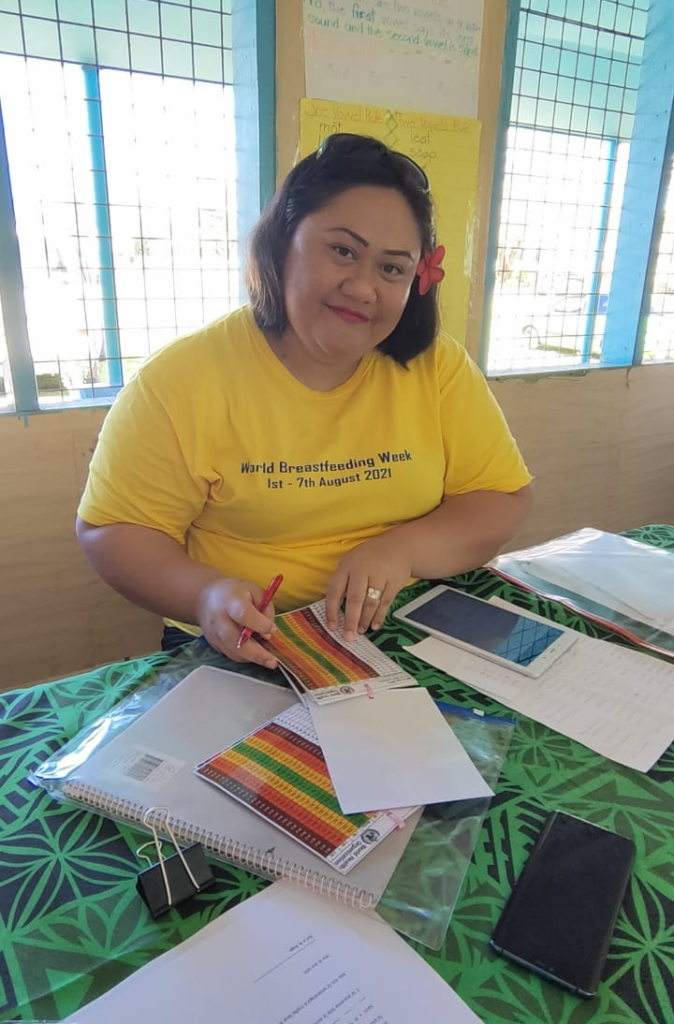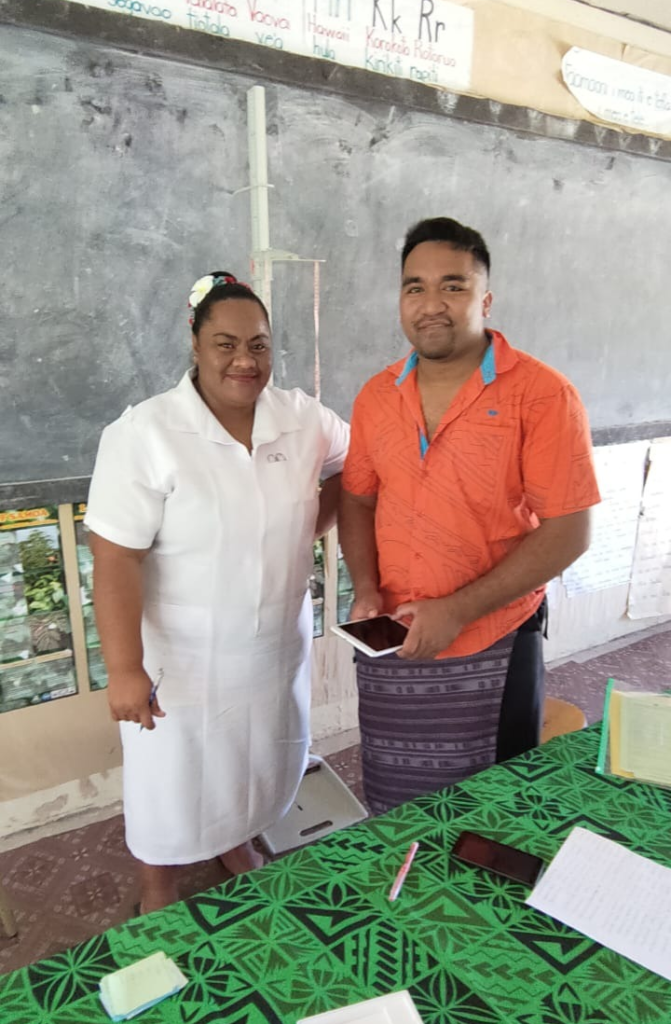2021 is shaping up to be the year of immunisations for Samoa.
Against the backdrop of their door-to-door COVID-19 vaccine campaign, there is also an impressive rollout of a national typhoid vaccine campaign.
Typhoid is endemic in Samoa, with an estimated 270 cases per 100,000 each year. For reference, a high endemic area is defined as more than 100 cases per 100,000 each year. Only a few countries globally have a higher incidence rate of typhoid than Samoa. Currently TCV, a highly effective single-dose vaccine, is not part of the routine immunization program.
But the hope is that is about to change. Since August 2021, Samoa has launched a campaign to vaccinate all Samoans between 1 to 45 years old.
As with many immunization campaigns, time is of the essence. The vaccines used in Samoa’s campaign have already been donated, so its vital that they are distributed and put to use before they expire.
That’s where Tamanu comes in.
Tamanu is an open-source patient-level electronic medical record system designed specifically for the Pacific region. It has already been upgraded to support an immunization model; currently in use to support the COVID-19 vaccine campaign, Tamanu has been used to record 196,578 vaccinations in Samoa to date.
For three weeks in August, nurses travelled to schools in the greater Apia urban area to vaccinate all the students. Ten teams of two nurses per team attend four schools each day. While one nurse gives the vaccination, the other finds and checks the student’s patient information in Tamanu and records the vaccination details in the system, including date of vaccination, batch number, and injection site.
Every effort is taken to ensure maximum efficiency of the operation, and that nothing goes to waste. An open vial can be used for up to six hours after opening when stored at +2°C to +8°C, and each team has an esky on hand to maintain temperatures of the doses.
“It’s tiring work vaccinating so many children per day, and it’s really hot, but it’s important we get it all done before the vaccines overheat” – Faamamafa (RN)
Each team vaccinates up to 200 students per day, and no one is left behind. Nurses record absent students so they can advise them to present to the hospital clinic, or so they can be captured in next year’s school vaccine drive.
The excitement amongst the students is palpable. All of the children sit and watch as each student gets called – some cry, others laugh, all are excited to be missing class, and all acknowledge the importance of getting vaccinated.
Digitisation of Samoa’s health system
“It’s so much faster than writing down” – Teuila Pati, EPI Coordinator RN
This is the first use of technology on the ground in this situation. Previously, patient details would be handwritten in consultation books, including name, gender, date of birth, village, mothers name, and contact details. Then, the senior nurse would spend weeks typing all the information into an Excel spreadsheet.
This system of manual data entry is time-consuming and prone to errors. Small mistakes can create delays, leaving children at greater risk of contracting vaccine-preventable diseases if not immunised effectively. Data inaccuracies also make planning difficult, leading to poor management of vaccine stocks and overall lack of efficiency. By inputting patient information directly into Tamanu, which syncs the centralised patient registry across all devices, the risk of data entry errors is greatly reduced.
Parents are keen for their children to be protected through vaccination too. All parents are present at the school with children and bring the signed consent forms and their immunisation records. In future, the printed immunization books will be unnecessary as patient information can be recorded in Tamanu and accessed by their healthcare providers.
The future of Tamanu in Samoa
Training for nurses was a key component of the national typhoid vaccine rollout. Once familiar with Tamanu, all training RNs get to work in the field and assist with data entry as part of their training.
“Trainee nurses are the way of the future, and it is so great that they get to use Tamanu and be familiar with it for when it is rolled out further across health centres” – Teuila Pati, EPI Coordinator RN
Tamanu is also supporting other public health campaigns across the country. At the moment, it is used for PEN Fa’a Samoa school nurse program. In this intervention, students’ nutritional status is assessed and monitored at schools, allowing school nurses to enrol them in health promotion programs as required.
Following the success of Tamanu for typhoid and COVID-19 vaccination campaigns in Samoa, the EMR will continue to support public health campaigns across the country. Tamanu will be expanded to be used for all routine vaccinations including BCG, DTP Booster, bOPV, PCV13, Rotavirus, Td Booster, TCV Typhoid, MMR, Hep B, IPV, Pentavalent and OPV Booster.
If you’re interested in learning more about how our tools can support vaccine & mass drug administration programs, you can learn more about Tamanu, explore our maps on Tupaia, or reach out to the team at Beyond Essential Systems.








